Document Author
Year Published
Topic
- (-) Remove Working Groups filter Working Groups
- Justice Tech Entrepreneurs (7) Apply Justice Tech Entrepreneurs filter
- 100% Access to Justice (5) Apply 100% Access to Justice filter
- Funding (3) Apply Funding filter
- Funding Strategies (3) Apply Funding Strategies filter
- Reports, Evaluations, Best Practices, Surveys (3) Apply Reports, Evaluations, Best Practices, Surveys filter
- Research (3) Apply Research filter
- Best Practices (2) Apply Best Practices filter
- Courts (2) Apply Courts filter
- Integration with Institutional Process (2) Apply Integration with Institutional Process filter
- Presentations (2) Apply Presentations filter
- Self-Help Centers (2) Apply Self-Help Centers filter
- Webinars (2) Apply Webinars filter
- Allied Professionals (1) Apply Allied Professionals filter
- ATJ Commissions (1) Apply ATJ Commissions filter
- Best Practices for Self-Help Centers (1) Apply Best Practices for Self-Help Centers filter
- Consumer Adoption (1) Apply Consumer Adoption filter
- Ethics Education (1) Apply Ethics Education filter
- Forms (1) Apply Forms filter
- Forms (1) Apply Forms filter
- Impact of Self-Represented Litigant Innovations on Cost and Efficiency (1) Apply Impact of Self-Represented Litigant Innovations on Cost and Efficiency filter
- Judges (1) Apply Judges filter
- Judicial Ethics (1) Apply Judicial Ethics filter
- Legal Aid (1) Apply Legal Aid filter
- Plain Language (1) Apply Plain Language filter
- Plain Language & LEP (1) Apply Plain Language & LEP filter
- Regulatory Concerns (1) Apply Regulatory Concerns filter
- Reports (1) Apply Reports filter
- Scaling in Court Systems (1) Apply Scaling in Court Systems filter
- Starting a Self-Help Center (1) Apply Starting a Self-Help Center filter
- Strategic Planning (1) Apply Strategic Planning filter
- Technology (1) Apply Technology filter
- Trial Court Self-Help (1) Apply Trial Court Self-Help filter
Tags
Post date
Search results
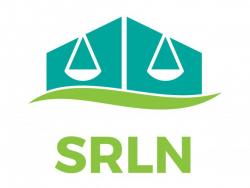
SRLN Brief: Procedural Fairness / Procedural Justice (SRLN 2015)
Research has shown that when defendants and litigants perceive the court process to be fair, they are more likely to comply with court orders and follow the law in the future—regardless of whether they “win” or “lose” their case. This is called procedural ...
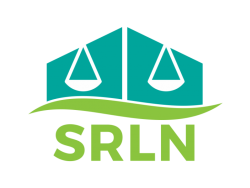
Best Practices: Best Practices in Court-Based Programs for the Self-Represented: Concepts, Attributes, Issues for Exploration, Examples, Contacts, and Resources (SRLN 2008)
This document, now in its second version, summarizes forty-two best practices in court based self-help service innovation, with descriptions of each practice, suggested attributes, examples and contacts. Recommended Citation, The Self-Represented Litiga ...
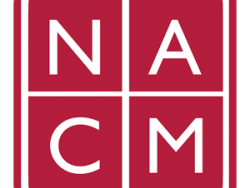
Webinar: How to Incorporate Plain Language into Court Forms, Websites, and Other Materials (NACM 2017)
The National Association for Court Management (nacmnet.org), in partnership with the Self-represented Litigation Network (SRLN), invites you to participate in its third webinar of 2017 on November 29, 2017 at 2:00 p.m. EST. Plain language is recognized ...
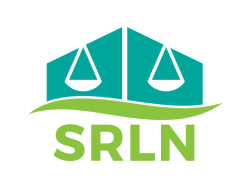
Webinar: Court & Legal Aid Technology Collaborations for Pro Se Litigants (SRLN 2005)
This SRLN webinar discusses the technology collaborations between the courts and legal services for pro se litigants. It was presented by Glenn Rawdon, Senior Program Counsel for Technology at the Legal Services Corporation (LSC), on September 21, 2005. S ...
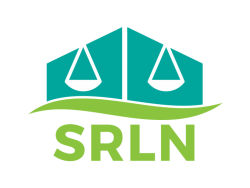
Resource: Title IV-D Funding Resource Guide (SRLN 2014, revised 2017)
Many state court systems and individual courts take advantage of federal funding under Title IV-D of the Social Security Act to obtain reimbursement for the costs of adjudicating child support and paternity matters when hearings are handled by persons oth ...
SRLN Brief: Funding (SRLN 2015)
Funding for SRL services comes from a variety of sources, including: state and local government appropriations; federal funding including VAWA for cases involving domestic violence, Title IV-D funds for cases involving child support, and a number of o ...

News: Child Support Federal Grant Matchmaking Expands Access to Justice by Promoting Strategic Collaborations (OCSE 2016)
The Office of Child Support Enforcement (OCSE) continues to be a driving force in ATJ through a variety of funding strategies that support innovations benefiting self-represented litigants (SRLs) including: IV-D reimbursements Formula Access and Visitatio ...